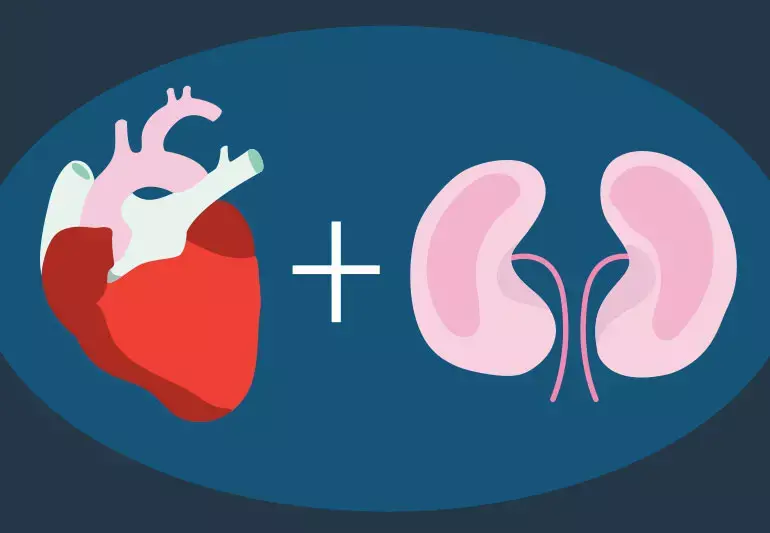- Home
- Medical news & Guidelines
- Anesthesiology
- Cardiology and CTVS
- Critical Care
- Dentistry
- Dermatology
- Diabetes and Endocrinology
- ENT
- Gastroenterology
- Medicine
- Nephrology
- Neurology
- Obstretics-Gynaecology
- Oncology
- Ophthalmology
- Orthopaedics
- Pediatrics-Neonatology
- Psychiatry
- Pulmonology
- Radiology
- Surgery
- Urology
- Laboratory Medicine
- Diet
- Nursing
- Paramedical
- Physiotherapy
- Health news
- Fact Check
- Bone Health Fact Check
- Brain Health Fact Check
- Cancer Related Fact Check
- Child Care Fact Check
- Dental and oral health fact check
- Diabetes and metabolic health fact check
- Diet and Nutrition Fact Check
- Eye and ENT Care Fact Check
- Fitness fact check
- Gut health fact check
- Heart health fact check
- Kidney health fact check
- Medical education fact check
- Men's health fact check
- Respiratory fact check
- Skin and hair care fact check
- Vaccine and Immunization fact check
- Women's health fact check
- AYUSH
- State News
- Andaman and Nicobar Islands
- Andhra Pradesh
- Arunachal Pradesh
- Assam
- Bihar
- Chandigarh
- Chattisgarh
- Dadra and Nagar Haveli
- Daman and Diu
- Delhi
- Goa
- Gujarat
- Haryana
- Himachal Pradesh
- Jammu & Kashmir
- Jharkhand
- Karnataka
- Kerala
- Ladakh
- Lakshadweep
- Madhya Pradesh
- Maharashtra
- Manipur
- Meghalaya
- Mizoram
- Nagaland
- Odisha
- Puducherry
- Punjab
- Rajasthan
- Sikkim
- Tamil Nadu
- Telangana
- Tripura
- Uttar Pradesh
- Uttrakhand
- West Bengal
- Medical Education
- Industry
Increasing Physical inactivity may contribute to lowering risk of disease progression in CKD

Researchers evaluated PA in 3374 Iranian patients with CKD aged ≥18 years. Exclusion criteria were current or prior kidney transplantation, dementia, institutionalisation, expected to start renal replacement therapy or leave the area within study duration, participation in a clinical trial or inability to undergo the informed consent process. The renal function parameters were measured and compared with PA, assessed by the Baecke questionnaire. Estimated glomerular filtration rate, haematuria and/or albuminuria were used to estimate decreased kidney function and the incidence of CKD. To estimate the relationship between PA and CKD, we used the multinomial adjusted regression models.
Results
In the first model, findings indicate that the patients with the lowest PA score had significantly higher odds of CKD (OR 1.44, 95% CI 1.16 to 1.78; p=0.01), adjustment for age and sex attenuated this relationship (OR 1.25, 95% CI 1.56 to 1.78, p=0.04). Furthermore, adjusting for low-density lipoprotein, high-density lipoprotein, triglyceride, fasting blood glucose, body mass index, waist circumference, waist/hip ratio, coexisting diseases and smoking made this relationship insignificant (OR 1.23, 95% CI 0.97 to 1.55; p=0.076). After adjusting for potential confounders, we found that patients with lower PA have higher odds of CKD stage 2 (OR 1.62, 95% CI 1.13 to 2.32; p=0.008), no association with other CKD stages.
These data suggest that physical inactivity contributes to the risk of early CKD, so encouraging patients with CKD to maintain higher PA levels could be used as a simple and useful tool to decrease the risk of disease progression and its related burden.
Reference:
Moeinzadeh F, Babahajiani M, Seirafian S, et alAssessing physical inactivity as a risk factor for chronic kidney diseases in Iranian populationBMJ Open 2023;13:e070360. doi: 10.1136/bmjopen-2022-070360
Keywords:
Moeinzadeh F, Babahajiani M, Seirafian S, BMJ Open, Physical, inactivity, contributes, risk, early CKD
Dr. Shravani Dali has completed her BDS from Pravara institute of medical sciences, loni. Following which she extensively worked in the healthcare sector for 2+ years. She has been actively involved in writing blogs in field of health and wellness. Currently she is pursuing her Masters of public health-health administration from Tata institute of social sciences. She can be contacted at editorial@medicaldialogues.in.
Dr Kamal Kant Kohli-MBBS, DTCD- a chest specialist with more than 30 years of practice and a flair for writing clinical articles, Dr Kamal Kant Kohli joined Medical Dialogues as a Chief Editor of Medical News. Besides writing articles, as an editor, he proofreads and verifies all the medical content published on Medical Dialogues including those coming from journals, studies,medical conferences,guidelines etc. Email: drkohli@medicaldialogues.in. Contact no. 011-43720751


